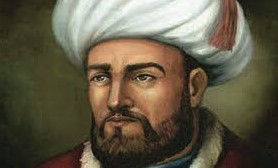Al-Ghazali Philosophy of Education
Education was not a separate science at the time of Al-Ghazali. Thus though he wrote extensively on the subject. There is no systematic record of his educational philosophy in any single book or work (Gunher, 2006). Al-noteworthy Ghazali’s work in the subject of Educational Philosophy is just one of the forty books. That comprises Al-Ahya ul Uloom Uddin (Revival of the Religious Sciences). Ayyuhal Walad [O’ Students – Letter to a Disciple], Meezan al-Amal [The Criteria of Action], and Al-Munqidh Min al-Dhalal [Deliverance from Error] are examples of similar works.
According to Ibn-e-Khaldun
According to Ibn Khaldun, it is the spiritual connection and oneness. He is famously referred to as asabiyya that permits communities and cultures to progress from modest. Beginnings to thriving and conquering governments and empires. However, as they undergo this metamorphosis and become acclimated to the niceties of wealth and urban life, indulging in study, culture, and the arts, as well as sheer hedonism, they progressively lose their asabiyya and have subjugated by fresh militant arrivals from the steppes and the desert. They, in turn, go through the same “civilizing” process, only to succumb to new invading hordes. This cyclical phenomenon is so widespread that Ibn Khaldun dubbed it “madaniyya” — a derivation of the Arabic word for city and the act of becoming urban.
Ibn-e-Khaldun beliefs
Ibn Khaldun’s beliefs, whether knowingly or unintentionally, were not alien to Zionist thinking. From A.D. Gordon to HaRav Kook’s spiritual essays, from HaShomer to the Palmah. There was a growing realization that Jews were in the Diaspora. Though lauded for their tenacity in retaining the religion, were losing their national compass. The pioneers who cultivated the land in frontier areas, the Jews who “conquered the mountains”. Where the nation’s forebears once walked, reflected the esprit de corps and group togetherness inherent in Ibn Khaldun’s asabiyya.
Israel is now one of the world’s most urbanized societies. Less than half of the population has employed in agriculture. The water towers that defined the kibbutzim and moshavim have replaced with shopping malls. The initial pioneering spirit and willingness to sacrifice for the sake. The national group have largely replaced by a rising feeling of individuality. If this hasn’t already happened, there’s a chance that asabiyya will give way to madaniyya. Israel cannot afford to dismiss Ibn Khaldun. It needs asabiyya to deal with its many enemies. Some of whom are Israeli Arab residents. act collectively, not as individuals.
What is Education of Al-Ghazali?
We may get a definition of education from Al-writings Ghazali’s by reading through his many works. According to Alavi, it is an interaction between a teacher and a student that occurs gradually, developmentally, and continuously throughout. The student’s life, with the goal of cultivating harmoniously and conclusively. All that God has created in the student for his or her happiness and spiritual benefit (Alavi, 2007, p. 312). Al-Ghazali regards education as a talent or practice rather than a science in and of itself.
Perception of God, world, and life.
The primary cornerstone of Al-educational Ghazali’s philosophy is the notion of God and His interaction with humans. Al-Ghazali distinguishes between this earthly life and the life after death. He regards this earthly life as transitory and the life to come is eternal. God is not only the creator of the cosmos, with its traits and rules. But He is also the cause of all events in the world, large or tiny, past, present, or future.
Concept and classifications of knowledge.
Al-Ghazali (1962) defines formalized Al-Ghazali views awareness and knowledge to be the most significant traits of a man. He emphasizes that knowledge is obtained from two sources. The senses and logic, but he regards both of these sources as weak, resulting in a man knowing just. The materialistic features of the world in which he lives. Divine revelation, on the other hand, allows him to understand more about life beyond death. Which he regards as eternal life. True knowledge, according to Al-Ghazali, is knowledge of God. His writings, His prophets, and His creation encompassing the kingdoms of earth and heaven. It also incorporates Shariah knowledge as given by His Prophit
